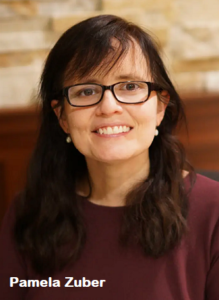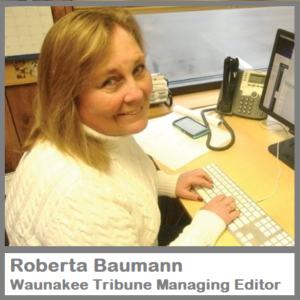Tagged: “Anger”
Do I always have to reach out to the one who hurt me? What if this person was tremendously mean to me such that I am re-traumatized when I meet this person? Would it be better then not to interact with this person?
You need not reach out directly to the one who hurt you if you are re-traumatized by meeting this person. You can reach out indirectly by donating some money to a charity in the person’s name or by saying a kind word about the person to others. When you forgive, you need not reconcile with the other if in doing so you are harmed.
I sometimes test myself by asking if I still am angry with the person who abused me. When I do this, I find that I still have some anger. Does this mean that I have not forgiven?
If your anger has fallen to manageable levels so that the anger no longer is controlling you, and if you now can wish the person well, then you are forgiving. Forgiveness need not be perfect in that there can be some anger left over. If you wish to reduce your anger even more, then you can once again start the forgiveness process with that person.
How Forgiveness Can Eliminate Grudges and Improve Your Mental Health
Fights and disagreements are ubiquitous. At some point, even the most agreeable of us have argued with or felt betrayed by someone we love. After a major fallout, you may think you’re entitled to hold a grudge. After all, how else can you demonstrate your displeasure, hurt, and anger? But holding onto hurt feelings may hurt you more than anyone else, due to the negative effects long-term resentment can have on your mental health.
Negative Effects of Holding a Grudge
By definition, a grudge can be described as an ill feeling or resentment toward someone who has wronged you in some way. Although others may not blame you for holding a grudge, you’re more likely to suffer from your feelings of resentment than anyone else.
Grudges can lead to negative feelings such as anger, sadness, bitterness, confusion, and hatred, which may grow stronger over time. These feelings won’t improve your outlook on the situation or resolve the issues that lead to the initial resentment. They can, however, cause you physical and mental harm.
Studies show that harboring a grudge or resentment can seriously impact your physical and mental health. Negative, resentful feelings not only rob you of peace and happiness, but they can also creep into the workplace, your social life, or personal relationships. The longer you hold a grudge, the more angry, bitter, and resentful you can become, until you have little happiness or positivity left in your life.
According to Dr. Charlotte vanOyen-Witvliet, a professor of psychology at Hope College and a leading researcher on the mental impact of holding grudges, the negative effects of grudges outweigh the reasons you may have for continuing to harbor ill will toward offending parties. “When people think of their offenders in unforgiving ways,” she says, “they tend to experience stronger negative emotions and greater [physiological] stress responses.”
In a 2010 study documented in the journal Social Psychiatry and Psychiatric Epidemiology, researchers reported that those who held long-term grudges had higher levels of hypertension, heart disease, ulcers, headaches, arthritis, and chronic pain than those who didn’t hold any. Holding a grudge thus seems to produce negative health consequences.
Is Forgiveness the Answer?
Forgiveness is making a conscious decision to let go of a grudge along with the negative feelings of resentment, anger, and revenge against those you feel have done you wrong and striving to offer goodness of some kind to them. You may still feel the perpetrator was at fault, but you no longer harbor negative emotions or attitudes toward him or her.
When you forgive people, you don’t necessarily excuse or condone their hurtful actions or behavior or need to “kiss and make up.” But by choosing forgiveness, you’re attempting to rid yourself of deep-seated negativity that could be keeping you from moving forward and living a happy, productive life.
Embracing forgiveness can help you restore peace, satisfaction, and positivity. You’ll no longer be defined by negativity, depression, or stress, but by your ability to rise above those feelings and move forward.
For some people, forgiveness comes naturally. For others, it requires more work. Once you’ve made the commitment to forgive, however, you might find yourself harboring fewer negative feelings and adopting a more positive outlook on life as Dr. Robert Enright details in his self-help books The Forgiving Life and 8 Keys to Forgiveness.
Anyone can choose to forgive and adopt a grudge-free lifestyle. In fact, according to a Fetzer Institute survey, approximately 62% of American adults said that they wanted more forgiveness in their lives.
Benefits of Forgiveness
Forgiveness can be a major force for good in helping people overcome grudges and regain peace of mind. It can help release the stranglehold that resentment has on your life so that it no longer defines you or influences your decisions.
Through forgiveness, you can put negativity behind you and look forward to improved mental, physical, and emotional health as well as a brighter future. In time, you may gain a greater understanding of why people act the way they do and learn to have compassion and empathy for those who have done you wrong.
Whether you’ve been harboring a long-term grudge against someone or have developed one recently, forgiveness could be the answer you need to get over your grudge and proceed. Forgiveness can benefit you in the following ways:
- Greater happiness – Forgiving others can release the hold of depression and sadness in your life so you can experience the joy of living again.
- Improved mental health – Through forgiveness, you can replace negativity with positivity, enabling you to enjoy a positive outlook on life. Positive thoughts, mindsets, and attitudes will follow to keep you on a positive path.
- Improved physical health – Negative feelings from a grudge can impact your physical health, causing high blood pressure, increased heart rate, stress, anxiety, ulcers, and more. When you forgive, your body no longer feels the ill effects of negativity, enabling you to benefit from better health. Forgiveness can also have a positive impact on your immune system, making you less susceptible to sickness and disease.
- Better relationships – Holding a grudge undermines your desire to love and trust others. This can cause ill will between you and your friends, relatives, or spouse. Forgiveness can end this cycle and promote greater connectivity with others, so you can build more stable friendships and more loving relationships.
You can’t change the traumatic circumstances in your past that led you to hold a grudge. You can, however, create a happier, more productive future by choosing to forgive. Through forgiveness, you can let go of the past and look forward to the future.
 This article was written by Pam Zuber, Editor|Author|Content Writer at Sunshine Behavioral Health. She has written similar educational pieces for various publications including Minority Nurse, Sivana East, and the UAB Institute for Human Rights.
This article was written by Pam Zuber, Editor|Author|Content Writer at Sunshine Behavioral Health. She has written similar educational pieces for various publications including Minority Nurse, Sivana East, and the UAB Institute for Human Rights.
Sunshine Behavioral Health, headquartered in San Juan Capistrano, CA, provides care, treatment,  and recovery therapeutics for individuals facing substance abuse, addiction, and mental health disorders. With a network of facilities in California, Colorado, Illinois, and Texas, the group offers inpatient rehab centers, outpatient treatment, and sober living homes.
and recovery therapeutics for individuals facing substance abuse, addiction, and mental health disorders. With a network of facilities in California, Colorado, Illinois, and Texas, the group offers inpatient rehab centers, outpatient treatment, and sober living homes.
Shedding Light on “The Dark Side of Forgiveness”
On December 16 this year, I had an interview with Justin Ballis, writer for the London-based magazine, What the Doctors Don’t Tell You, that aims to provide evidence-based holistic solutions to illness. Mr. Ballis was one of the most informed interviewers on the topic of forgiveness whom I have ever encountered. The interview covered an impressively wide range of topics on forgiveness, one of which centered on criticisms leveled against the practice of forgiving those who hurt us. In his researching the skeptical views, Mr. Ballis came across a journal article on “the dark side of forgiveness” by Dr. James K. McNulty:
McNulty, J.K. (2011). The dark side of forgiveness: The tendency to forgive predicts continued psychological and physical aggression in marriage. Personality and Social Psychology Bulletin, 37, 770-783.
This discussion with Mr. Ballis got me thinking: If well-informed journalists are aware of Dr. McNulty’s article, then it is important to have a thoroughgoing critique of that work, which is flawed in many ways. So, with this in mind, here is an excerpt (chapter 14) from my book with Dr. Richard Fitzgibbons, Forgiveness Therapy (American Psychological Association, 2015), in which we examine the science behind this work:
McNulty (2011) claimed to have found scientific support for the view that forgiving within marriage perpetuates injustice. Seventy-two first-married couples took part in a survey in which they responded to hypothetical situations regarding forgiveness. For example, one of the partners asks the other to mail a very important package which the other partner then forgets to do. On a 1-to-7 scale, the respondent reports the degree of forgiveness that he or she would offer to the forgetful spouse. We have four criticisms of the study’s conclusions: a) The questionnaire was very short (five items); b) the questions were all hypothetical and not actual situations in the marriage; c) only one of the hypothetical scenarios is actually serious (an alleged affair), and d) the questionnaire simply asks the participant if he/she would forgive without ever defining the term. The forgetful spouse who failed to mail the package did not act with intent to harm. The one choosing to have an affair did. In other words, some respondents may be confusing genuine forgiveness with excusing or “letting go.” This is a serious flaw to the work (failing to distinguish related but quite different terms) that could have been overcome by asking people what they mean when they use the word forgiveness. The findings could reflect this: Those who score high on this scale are doing the most excusing or condoning, which could make them vulnerable to further abuse. In other words, those who excuse may not seek a proper justice solution upon “forgiving.”
So, there is our critique. My conclusion? It is this: If there is a “dark side” to forgiveness, the above study is not the one to show it.
Robert
Among Hopes for the New Year: FORGIVENESS
Editor’s Note: This Guest Blog was written by Roberta Baumann, Managing Editor of the Waunakee (WI) Tribune, and originally appeared in that newspaper on Dec. 31, 2020.
This past year has been so difficult that perhaps, more than any other time, we’re all looking forward to its end, to starting 2021, a year filled with hope.
With the promise of a vaccine and an end to the pandemic, we hope our lives will return to normal, we can send children back to school in person, and our economy can begin to recover.
In some ways, rather than bringing us together, COVID-19 has rendered deep divisions. Another hope for 2021 is forgiveness.
Several years ago, University of Wisconsin social sciences professor Robert Enright spoke about this topic at a Waunakee Rotary meeting. With his examples of remarkable acts of forgiveness — cases in which a rape victim forgave the rapist, and individuals from war torn countries made peace with those who killed their loved ones — his talk was unforgettable.
 Forgiveness is not the same as forgetting. It requires empathy, recognizing the person behind the act. And it does not benefit that person who has done harm. Instead, it benefits the one holding the grudge.
Forgiveness is not the same as forgetting. It requires empathy, recognizing the person behind the act. And it does not benefit that person who has done harm. Instead, it benefits the one holding the grudge.
Holding onto anger increases stress and anxiety, and neither is healthy emotionally or physically. Experts say forgiveness can result in lowered blood pressure, improved mental health and even a stronger immune system. We all know how important a strong immune system is right now.
Also, when we carry that resentment, it can spill over and affect our relationships with others. When we bring it home and say, yell at the dog, we just create stress in our families’ lives and feel worse.
Forgiveness starts with recounting the wrong you feel has been done, trying to understand the reasons behind it, and then moving on. For some, meditation or prayer helps with this process.
One article from the Mayo Clinic suggests, “Move away from your role as victim and release the control and power the offending person and situation have had in your life.”
Forgiveness is not always one-and-done; anger can resurface, and the process can start all over again.
Forgiveness also differs from reconciliation. In some cases, the person who has done harm feels no remorse or takes no responsibility. Yet essentially, it’s not about the wrongdoer, but the person who feels resentment and how harboring that feeling affects them.
As we look ahead to a year full of hope, let’s do so in a way that brings greater unity and peace. We are all stronger together as a community and a nation, and we will soon face the task of healing and rebuilding from the tremendous losses we’ve faced in 2020.
“I wrote this piece during what may have been the darkest time of the COVID-19 pandemic,” Baumann says. “In retrospect, I believe isolation and fear gave rise to anger — a much more empowering feeling — among many in the Waunakee community. My hope was that in 2021, divisions in the community could begin to heal.”
An award-winning writer, Baumann has been the Managing Editor of the Waunakee Tribune for 26 years. She graduated from Iowa State University with a master’s degree in English. Waunakee is a village of 15,000 residents just outside Madison, WI.



